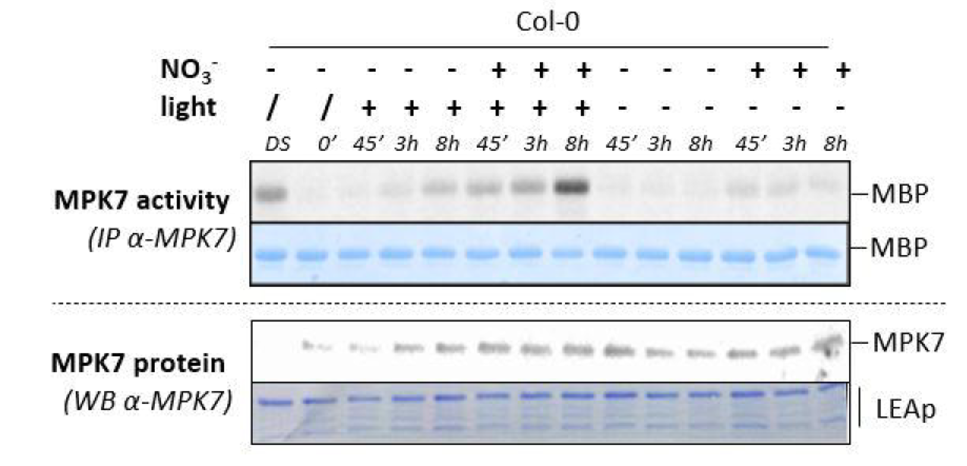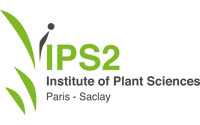New roles for MAP Kinases in plant germination
The MKK3 module integrates nitrate and light signals to modulate secondary dormancy in Arabidopsis thaliana
Sarah Regnard from the Stress Signaling group at IPS2 recently published her PhD work in PNAS, where she identified and characterized a signaling module involving MAP kinase MKK3 cascades and crucial for modulating secondary dormancy in plant seeds. Secondary dormancy is a condition where free seeds, after being exposed to unfavorable environmental conditions, enter a state of dormancy preventing germination. For farmers, this adaptive mechanism means potential delays in crop culture establishment, reduced uniformity in seedling growth, and ultimately, lower agricultural yields, and increased management costs. In this original research, conducted in collaboration with Professor Naoto Kawakami's group at Meiji University (Japan), as wells as the groups of Anne Krapp (IJPB, France) and Marc Blondel (UBO, France), Sarah Regnard established how Arabidopsis seeds sense nitrate and light—two signals long known to promote seed germination and able to break secondary dormancy. Additionally, the study highlights the complexity and variety of the MAPK phosphorylation-dependent signaling cascade in plants. Noteworthy, a few weeks earlier, Pr. Naoto Kawakami's group, in the context of the same Franco-Japanese collaboration, published a study in the same PNAS journal, showing the role of this module in the lifting of primary seed dormancy by temperature and after-ripening.

24/09/2024
